This is my simple recipe for natural fabric softener. Fabric softener as we know it – the commercial stuff that is – is really not good for us. It’s not good for the environment either. It often contains some very questionable ingredients that are known to stick to clothing, irritate skin and aggravate allergies.
Companies (in Australia anyway) are not required to tell you what is in cleaning products, so we often won’t see panels on packets of softener which makes it hard to make educated decisions when out shopping.
It often takes a little searching on the internet to find comprehensive ingredient lists, and even then, it is the companies choice whether they publish them or not.
Here is an example of ingredients within one popular supermarket brand of softener. From what I can see, most softeners available are similar in their contents.
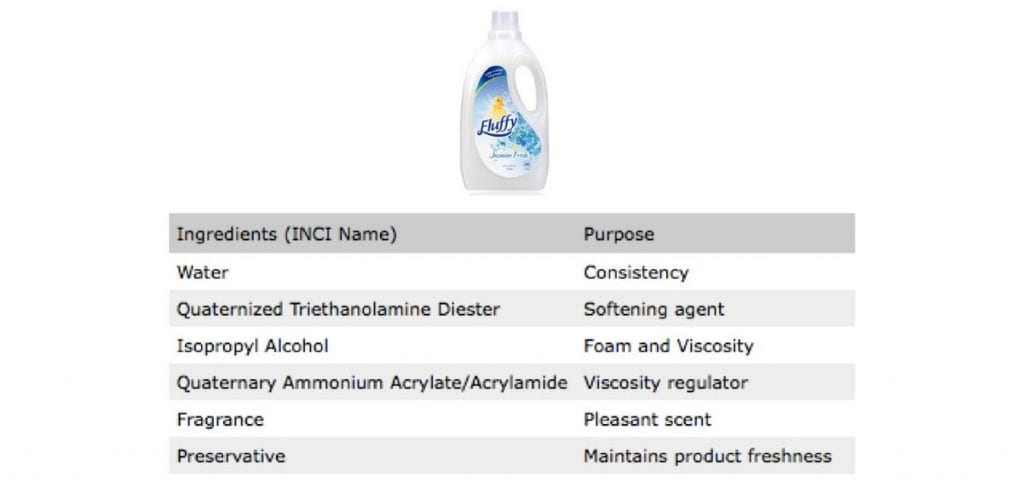
Here’s a brief look into these ingredients:
Water – any time you see water in a product, look for preservatives. Usually, not a good sign.
Quaternized triethanolamine diester – I can’t find much reputable data on this but Triethanolamine is petroleum-derived and may cause contact dermatitis.
Isopropyl alcohol – not much to worry about in a cleaning product but not something I would use on my skin.
Quaternary ammonium acrylate/acrylamide – quaternary ammonium compounds rate poorly with EWG (my go-to for chemical research and advice). Although the data covers a broad scope, there is mention of toxicity to aquatics and moderate concern for asthmatics.
Fragrance – a toxic minefield and my most hated ingredient, unless derived from essential oils! Watch out for this one. There is a list of hundreds of chemicals used for fragrance formulation, and companies don’t have to tell you what they use – it’s their trade secret. Fragrance is associated with allergies, skin irritation, asthma, headaches etc.
Preservative – interesting that they don’t tell you what preservative. Some preservatives, such as Formaldehyde, are known to be carcinogenic to humans, others, salt, for example, is fine. So I’m dubious here.
You know how when you’re at the supermarket, you can smell the softener aisle a mile away (if you’ve been living a lower-toxin lifestyle for a while now, you’ll know what I mean!)? It really is something I like to avoid. I can even smell people’s washing when I take my daily walk if they’ve used softener – that’s how potent this stuff is! It sticks to your clothes, it coats your machine in slime making it hard to clean, and it’s terrible for septic systems and our waterways in general.
Have I convinced you to make the switch to natural yet?
For a long time, I have been using straight vinegar as a natural fabric softener. And it works well, so if this recipe seems like a little too much effort for you, then stick with that. But this recipe for natural fabric softener, ooh-la-la, it really does make my laundry nice and soft!
Natural Fabric Softener
Makes: 1.1 lt Prep time: < 5 min.
Ingredients
- 1/2 cup | 140 g fine salt
- 1 cup | 250 ml hot water (see recipe notes)
- 3 cups | 750 ml white vinegar
- 2-3 drops of essential oils (per use)
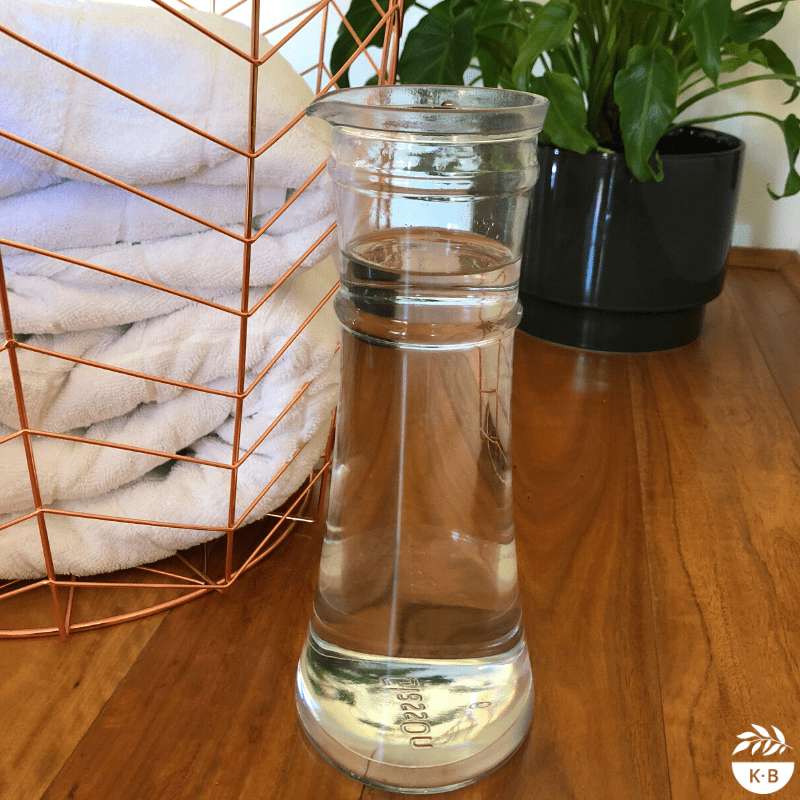
My Choice of Essential Oils
My favourite essential oils in this recipe are lemon and eucalyptus, but don’t be limited by my suggestions. Use oils that fit your budget, or those that you already have in your collection. Read here for more information on essential oils.
Method
1. Add salt and hot water to a bowl and mix until salt has dissolved.
2. Add vinegar and stir until combined.
3. Transfer into container of choice.
To Use
Shake well, then pour approximately ½ cup of liquid and essential oils (if using) into the designated softener compartment of your washing machine.
Recipe Notes
- Water should be distilled, purified or pre-boiled and cooled to extend shelf life.
- If the salt doesn’t fully dissolve, don’t worry too much – it will dissolve over time.
- If you’re concerned about your washing machine then don’t use this recipe. I personally have had no issues at all, after years of using vinegar in my washing machine, but it is ultimately up to you.
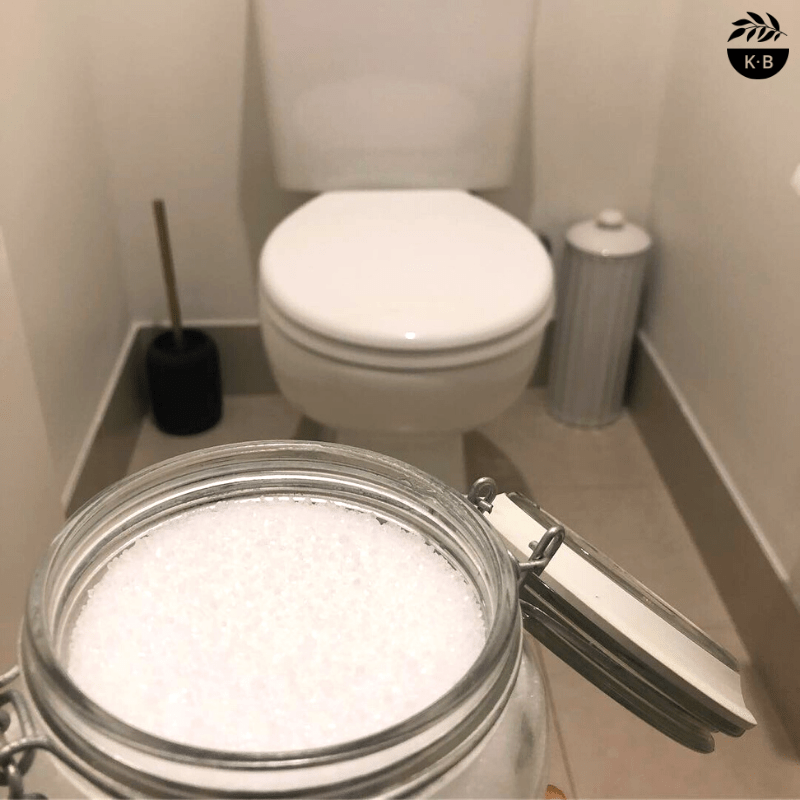
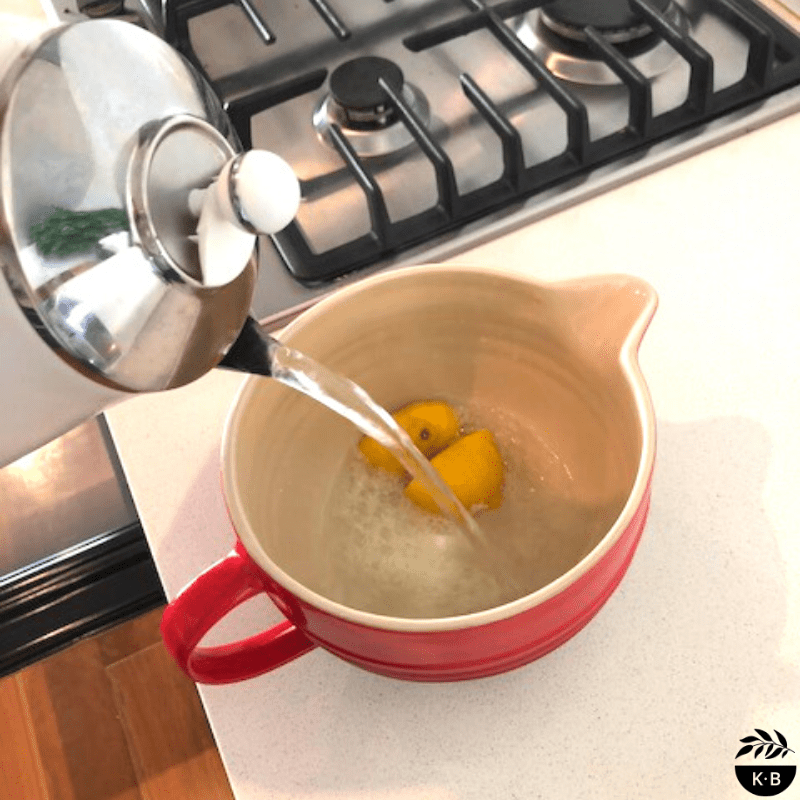
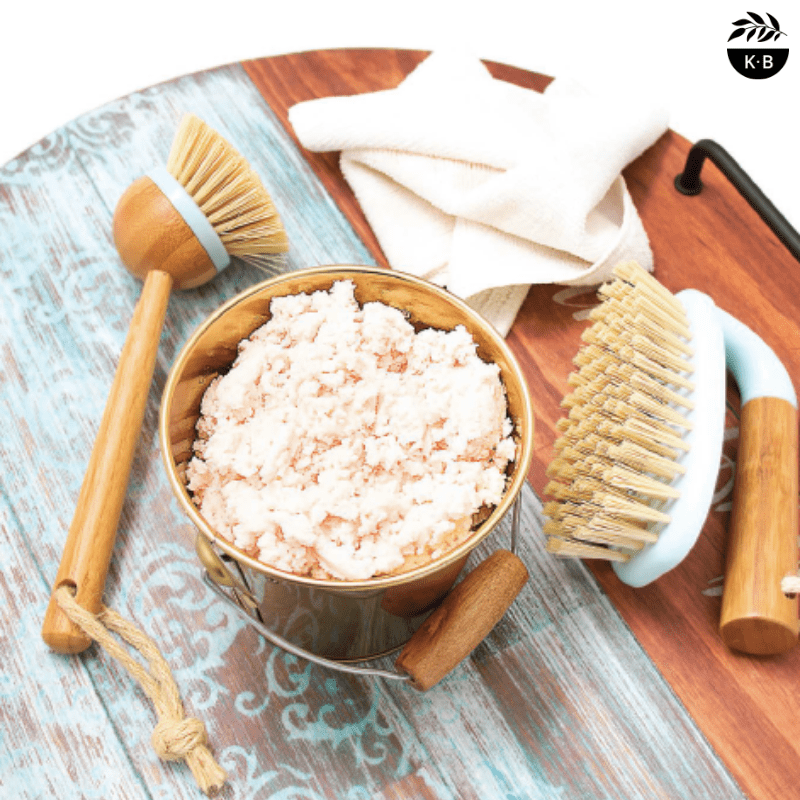

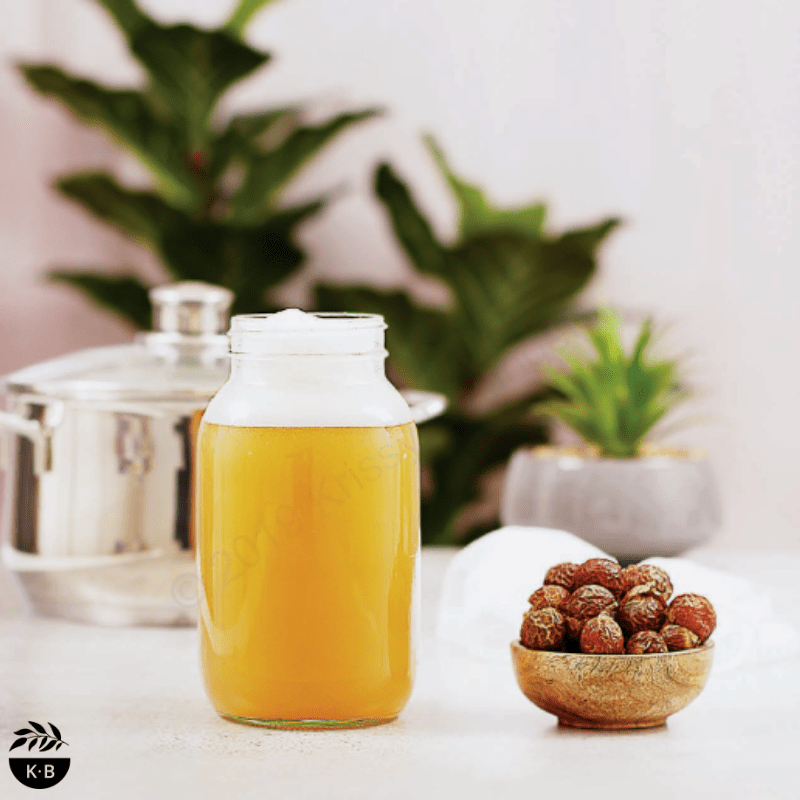
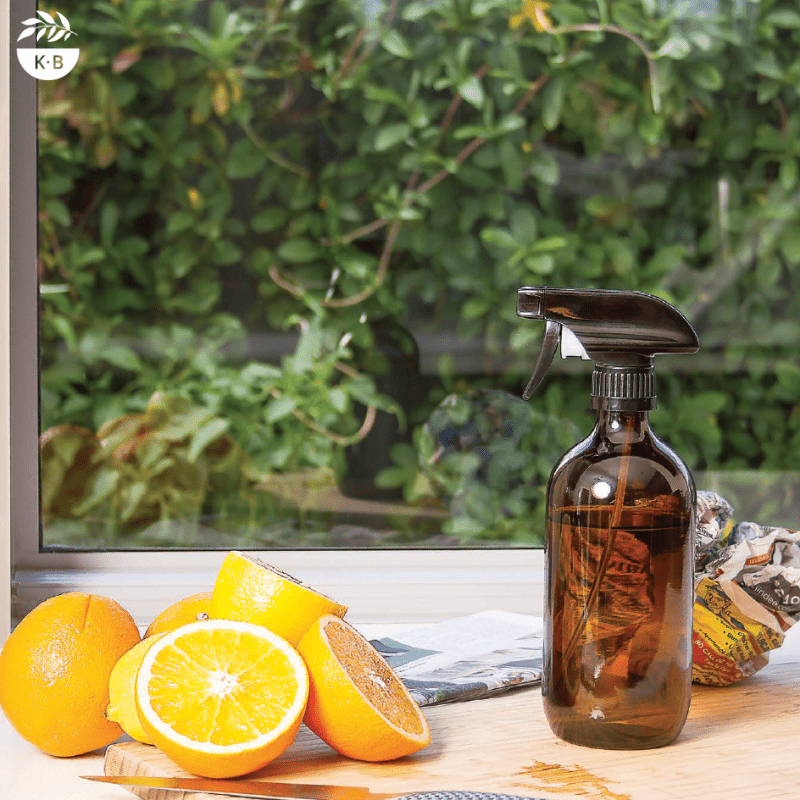
11 Comments
I’ve been using plain white vinegar as my fabric softener for 7+ years and we’ve had no issues with the washing machine. Never thought to add salt to soften our very hard water. Will give this a try!
I also use a hot load with 1/2C bicarb to clean the washing machine periodically.
Hi Krissy, thank you for this recipe. I’m not so sure about the salt in the machine. Have you tried it without the salt? What is the salts purpose?
The salt helps to soften the water. When I feel lazy I just use straight white vinegar – works well!
I’ve been making this fabric softener for a year and will never go back. It takes about 2 minutes to make it! My favourite oils are lemon, tea tree, eucalyptus or lavender for bedsheets ??
Love this recipe. It’s cheap and so easy to make – and it works.
Have made this ever since I got the book!! Peppermint and lemon grass is my fav oils!
Love adding a bit of clove oil when I wash the duvet covers before storing away for summer to avoid mould!!
Hi Krissy, I would like to make a fabric softener for some canvas fabric I’m using to make a yoga bolster but I don’t want to wash it in my front loader so do you have a different way to do this?
Regards
Isabellarusso
I’m not entirely sure what you mean? You want a softener suitable for hand washing?
Is it best to store the fabric softener in the fridge to prolong shelf life?
You could. More info on preservative and shelf life here 🙂 https://krissyballinger.com.au/blog/preservatives-shelf-life-and-safety-information/
This recipe excited me too much! Can’t believe it’s that simple. After hearing store bought fabric softener is bad for the washing machine and trying to begin a low tox life for my children and I, I can’t wait to try this!!! ?